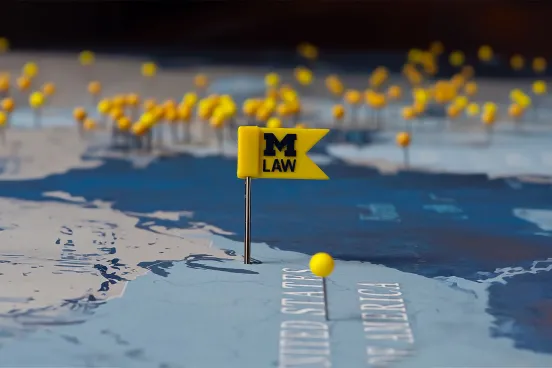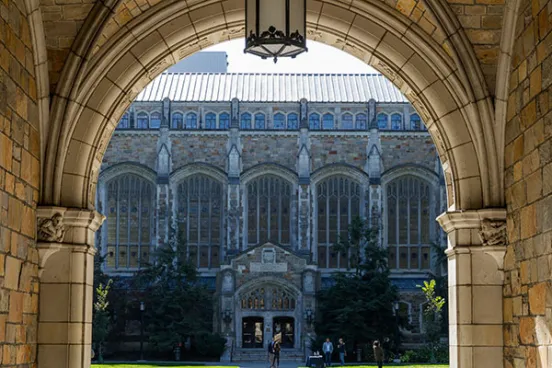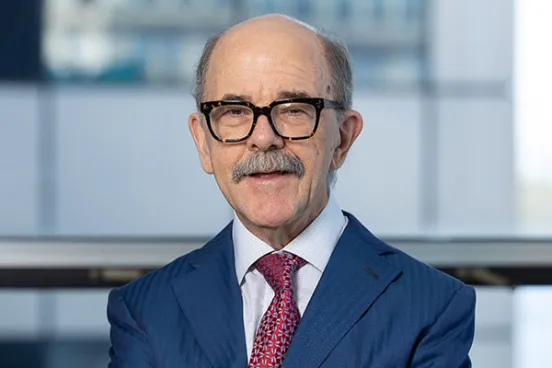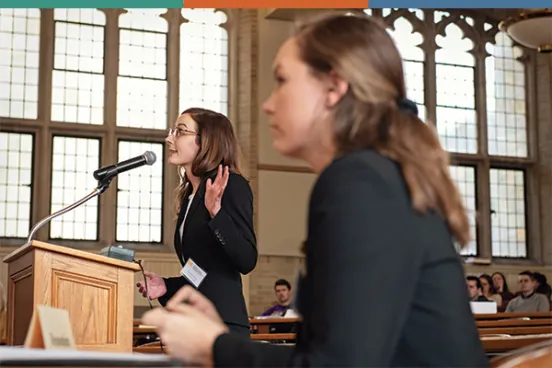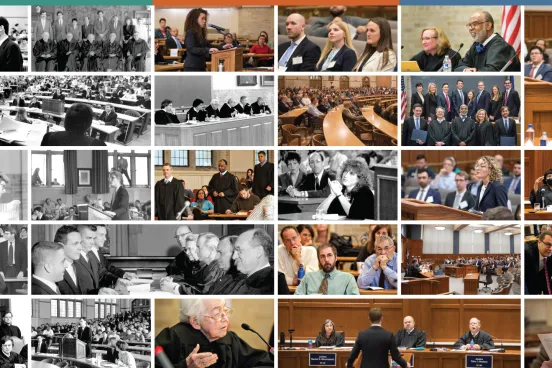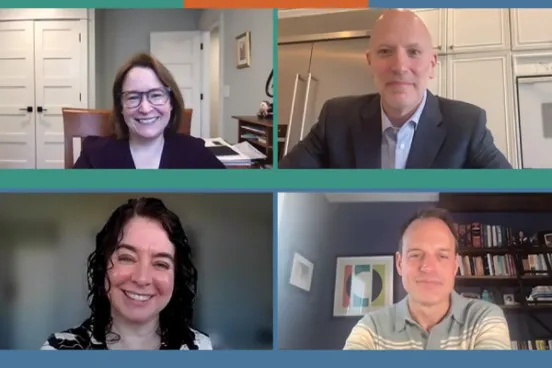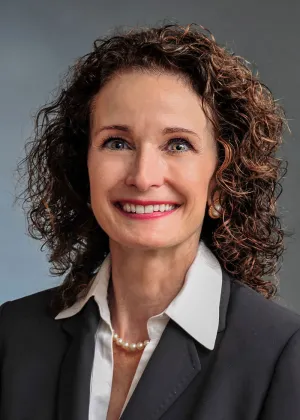
Resolving legal conflicts by way of shouting is not how Jayne Rizzo Reardon, ’83, handles things. But that wasn't always the case, and it took a particularly fraught negotiation early in her career to set her on a search for a better way to practice law. What came next was a career working to promote civility, diversity, and innovation within the legal profession.
Reardon recently received the Michael Franck Professional Responsibility Award, one of the American Bar Association’s top honors. The award pays tribute to Michael Franck, late director of the State Bar of Michigan, and recognizes those who demonstrate the highest degree of dedication to legal professionalism.
Jayne Rizzo Reardon, ’83“I was absolutely blown away by receiving this award... The people who have received this award in the past were outstanding scholars of legal ethics, law school professors, and legal practitioners—people I revere.”
Reardon is a former trial attorney whose primary work today includes mediation, arbitration, and ethics consulting. She is involved in educational programming for law students, lawyers, and judges, and her writings have been published widely, most recently an article in the PLI Chronicle on the effect of artificial intelligence and other technological advancements in the legal field. Reardon also served as executive director for the Illinois Supreme Court Commission on Professionalism and acted as disciplinary counsel for the Illinois Attorney Registration and Disciplinary Commission Review Board.
Reardon’s interest in legal studies developed early on, and her enthusiasm to pursue a legal career grew during high school and as an undergraduate. “I was intrigued by the parts of our legal system where everyone has rights and where lawyers exist primarily to help people access and exercise those rights,” she says. “Those kinds of aspirational underpinnings for a career really appealed to me.”
Following her graduation from the University of Notre Dame, Reardon was inspired to apply to law school after working for Michigan Rep. Lucian Nedzi. She eventually matriculated as a summer starter at the University of Michigan Law School.
“The experience of intense intellectual engagement and intense friendship that was formed that summer and throughout law school is heartwarming,” says Reardon. “I hadn’t had an experience like that before, and I haven’t had one like it since.”
After earning her JD, Reardon became a trial attorney in Chicago, first working for Wildman Harrold Allen & Dixon (now Locke Lord) and later for Kelley Drye & Warren. During this time, she oversaw product liability, employment, and commercial and medical malpractice litigation. Reardon authored appellate briefs in federal and state courts, instituted associate training and legal education programs, and served on recruiting and advisory committees for both firms.
While she found the work invigorating, she realized the intensity of her practice was veering into territory she wasn’t comfortable with. “I remember getting into a shouting match on the phone, and I felt ashamed,” she says. “I was incentivized to be aggressive, but I knew we could represent clients well without shouting, yelling, and running into court. That was a turning point for me.”
Searching for a fresh start, Reardon found work as disciplinary counsel for the Attorney Registration & Disciplinary Commission of the Supreme Court of Illinois, looking at the rules governing how lawyers behave. When she learned the Illinois Supreme Court had created the Commission on Professionalism, she jumped at the opportunity to join. “That connected me again to why I became a lawyer, to use the law in the way it was intended and to advance professionalism, civility, and diversity,” she says.
For Reardon, the Michael Franck Professional Responsibility Award is an important part of the legal profession’s commitment to ethics and civility.
“What this award means to me is broader than just what I symbolize,” Reardon says. “The vast majority of everyday American citizens feel they cannot afford a lawyer and that the system doesn't exist for them. So, the importance of working to make the system better and more accessible for the good of society, I feel, is reflected in this award. I find it so gratifying.”


